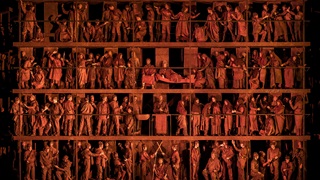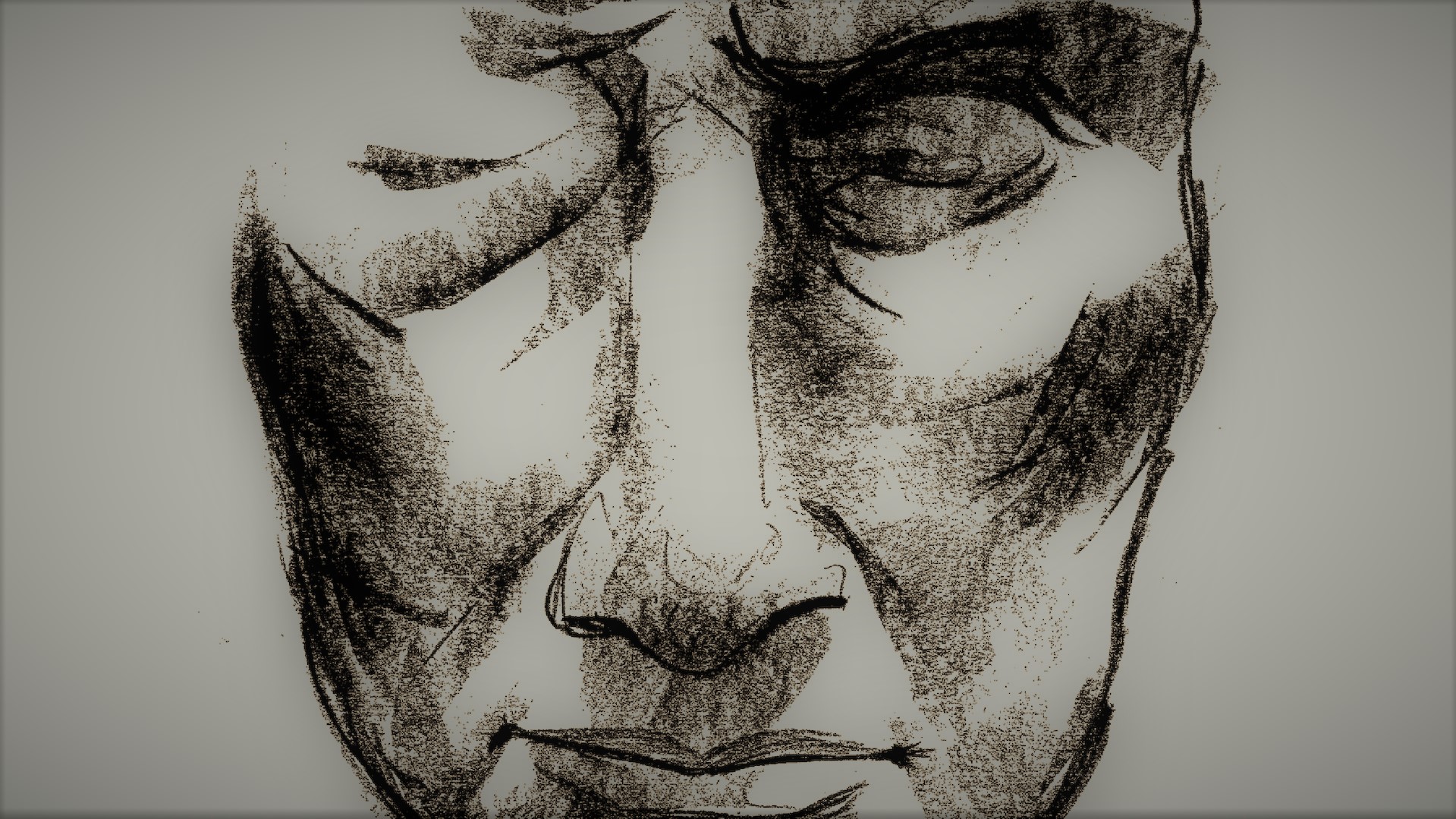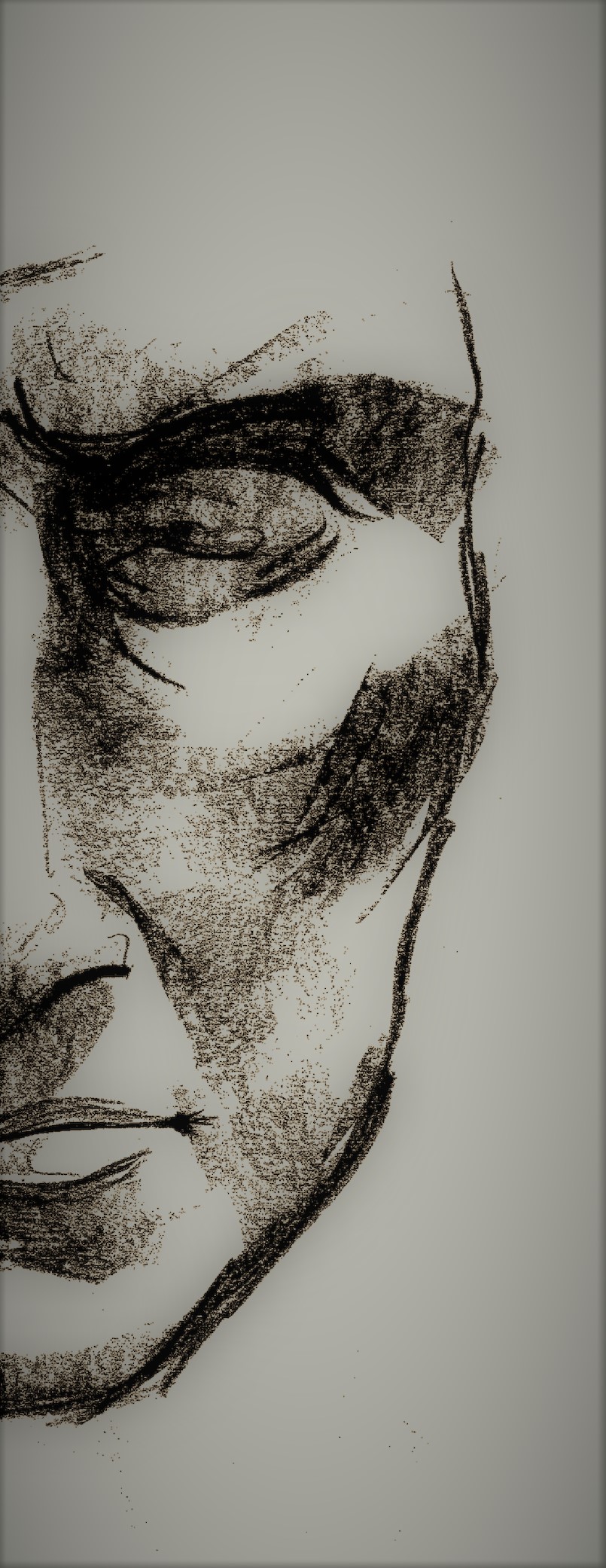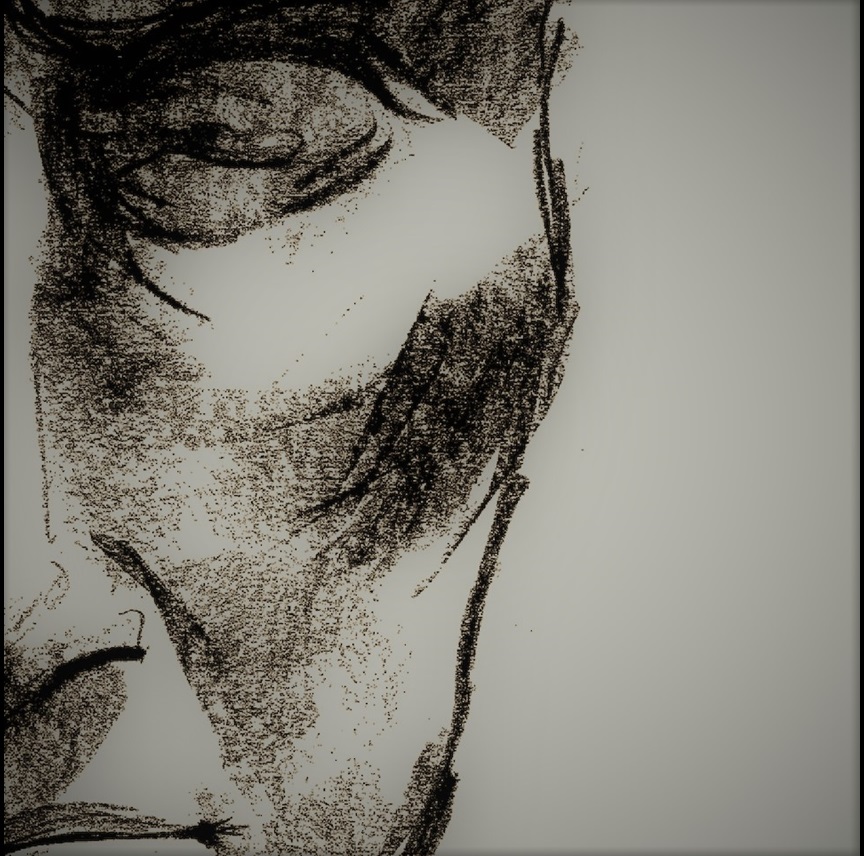
Features
Essays, stories, prose poems, surveys and critiques


In Greek theatre, the chorus is there to reveal the plot. To criticise. To pass judgement. In late 2015, we put together a contemporary Greek chorus—fifteen Greeks living in Athens and Poros—and invited them to tell us how it feels to be Greek today.

Days to come stand in front of us
Days gone by fall behind us
A Greek is somebody who constantly struggles. It’s a strange thing. A Greek manages to consume himself.
Religion plays a huge part in Greeks’ life. In Holy Week, the church is packed with people, young people. I’m not talking about my generation. Forget my generation, it’s gone, finished.
To be Greek is to be hospitable; warm; joyous; slightly arrogant. To be Greek today is to be put upon. To be wronged by your politicians. To have had your own future and that of your children compromised. To share some blame for that but to also carry within you some kind of—optimism.
The Greek is very bright. It is our climate, it is the light. It is our language. So many vowels—hah, hoh—so you get more air in the brain, you get more time to think. You cannot say to a Greek, “Sorry, for the next thirty years, you just have to sit there and work for your country and produce and go home, nine to five”, and think that they will say, “Yes, this is what I am required to do: people are telling me that this is the right thing, yes, I will do that.” You cannot say this to a Greek, because the Greek will say, “No. This is my life. I’m going to live it the way I like it.”
This is what the Greeks say. They say, “Life is short, so we have to make the best of it, these few nice years.”
Go to the island of Leipsoi and there you will find a taxi driver. He is 55 and he doesn’t have many teeth left in his mouth. This man, this Greek, he is full of energy, full of passion, very proud. “It doesn’t matter,” he says, “we will survive.” Here is your Greek optimist. Losing money, gaining money, and again losing all his money, and again making again all his money! That’s your Greek.
Greeks have been migrants throughout Greek history.
Greeks fighting Turks is like brothers or cousins fighting each other.
I have Armenian blood in me. One of my grandmothers was a refugee from Asia Minor, from Smyrna.
“In Greece everything is forbidden and everything is allowed.” This is true. We have law. We don’t follow the law. We have government. No one governs.
All Greek people are selfish. Sometimes, we Greeks are hypocrites. Even racist.
I feel so disappointed about the rise of the far right in Greece. Yes, it comes from disappointment but also it comes from people’s lack of education. Some people vote for them out of stupidity. “Okay, I don’t like anyone, so I’ll just vote for them to show that I’m against everyone.”
Sometimes, when you have a dog that barks very loudly, this is the only thing you hear. People stop thinking.
All the disasters that have hit us are somebody else’s fault, never our own—whether it was the Turks or the Germans or the Bulgarians. We always look on our neighbours as enemies, but these are things of the past. Those generations are gone.
The Greeks view themselves probably as more sophisticated than anybody in Europe.
And yet there was a lot of racism in the mid nineties when we had an influx of Albanians (some of them actually northern Epirots).
The Greeks are very stubborn. It is difficult to work as a group.
The Greeks cannot work together. They cannot create a car together. They cannot build a bank together. They are entrepreneurs. They like to work alone. The Greek treats the state as an enemy. There’s a lot of black money going on.
Greeks are torn between their desire to be part of Europe and their desire to be left alone. The days of a nineteenth-century neoclasssical model are over. Some romantic Byron figure posing on an ancient crumbling column, that’s all over. Greece is part of the Balkans, part of Europe, part of Asia Minor.
It is not so easy to identify with Balkans.
I’ve always identified as southern European. I don’t mind being identified as Balkan.
The Greeks try to suppress their Balkan identity. Being Balkan is to do with the mentality. Being stubborn. And loud. Which you might also say for Mediterraneans.
We are part of Europe but our ties with the Balkans are much closer. I see a lot of Albanians living here, a lot of Romanians: it is the Balkans. Just that the Greeks advanced a little quicker. This is politics, what can you do? The Iron Curtain came down and we were on one side and they were on the other.
We are still struggling to bring ourselves up within the Balkans. Because we are fighting amongst ourselves we cannot have the influence we should have.
My husband works in a bank. He used to help with loan applications by SMEs. One of his customers was a Romanian florist. He would call her up and tell her ‘In five days the next payment is due on your loan.’ ‘Right. Do I have enough money in the bank now?’ ‘Yes.’ ‘Okay. Pay it now!’ ‘But it’s not due for another five days.’ ‘I don’t care. Pay it now.’ She didn’t want to owe money. She was very eager to be the best she could in the country where she lives now.
For us, saying Ochi—saying No—started with the Italians, when we said Ochi to Mussolini in 1940. Then there was the German occupation. Then the Bulgarians. We’re used to saying Ochi. It carries a lot of power—this is something that represents us.
All those people who voted Ochi, they didn’t want Greece to go out of Europe. No. They just wanted to show defiance. When you see somebody shaking their finger at a Greek, this doesn’t work. You cannot do that to a Greek. I even find myself thinking, I don’t like this, I don’t like being told what to do.
Eleuthería i Thanatos. Freedom or death.
The Greek who voted for Ochi will tell you, ‘We have nothing to lose. Okay, we’ll suffer for two or three years but we’ve been suffering throughout our history so, so what! They cannot take this place from us.’ It’s not possible.
The Greeks will accept something that they shouldn’t and then rise up against something trivial and say, ‘No, that’s it, you have gone too far’.
The more pressure, the more the Greek will want to say Ochi.
It’s our culture to say no. If you say to a Greek, ‘Do it!’, they say no.
It’s not so easy to crush the spirit of any people.
Things were getting better. Shops were opening up. People were getting jobs. There was talk of the taxes easing up. Now we’ve got capital controls. Say you have savings in the bank: you can’t take it out. We don’t know if there’s going to be a bank bail-in. It’s almost impossible to buy or sell a property. Sometimes I wake up in a cold sweat thinking what if that company I’ve invested my pension plan in goes under.
Fear. I think fear pervades most people’s lives right now. And anxiety.
My parents run a little business, and it’s very hard for them now to keep afloat.
You cannot keep on getting milk from the cow: you kill the cow. Austerity is not the solution, it’s never the solution. There’s no development. Just pain.
In the villages they have their own milk and grow their own vegetables. They can exchange their food for something else. It’s the old ways. It is the people in the small apartments all around Athens who are suffering. I take my daughters there in the car to see where other people live. These are people who don’t have a pension. They are unemployed. You want to see poverty? Go to Athens.
We have more suicides than you can imagine. I don’t know the rates, I can’t tell you the numbers, you can find out. Many, many people are taking antidepressants, far more than before. Most people I know are on antidepressants.
Greece was a country with a middle class, a growing and robust middle class. Now we have a workforce that has been dried out.
Greece was full of small businesses, family businesses. People were happy. They were making money, they were saving, they were building, they were expanding. Businesses can be sustained when they are family businesses because most people work for free. It’s their own business, so they know that whatever profit they make they will share between them. That’s what you had in Greece: many, many small businesses that could become big and trade with everywhere in the world.
But now, if small businesses are driven out of work, then all these people, family members, who could sustain themselves by working—and the employer was happy to forgive their lack of knowledge or their lack of skill because they gave loyalty—now, small businesses are crushed and they cannot make a profit, so you get many people on the dole, many people who need money from the state, and the one or two skilled people in the family are obliged to go and work for somebody else and then feed the rest of the family who are not skilled but did work. That’s a harsh thing to do. It’s a burden for one person to carry.
I am the one who works for other people in my family, people who cannot work. They are not getting money from the state because they are not pensioned, they are not on the dole. I am the one who is working for them. This is very, very tough.
I came back to be creative and build something. And at that point where my career was about to flourish, at that point where you start realising what design means, what creativity means, at that very point the economy collapsed.
I have been back a long time, since 1995. Twenty years. I’m 49. It feels critical now. These are the most productive years for an architect. But we have to have clients. There are no new clients to find. I have let all my people go, little by little.
The family is paramount.
You are ready to help your family. You are there for your family.
Even my mother is giving me money, which is ridiculous.
Very rarely you will find a Greek family that will not do the utmost sacrifices to provide for their children.
In Greece, most women live with their parents until they get married.
Greeks take care of one another. If a sibling or a child is unemployed, the family is going to step in. When I returned to Athens, at first I lived with my parents. A lot of people asked, well, how long is that going to last? But in Greece that’s the way it is with family. The door is always open.
Family is a good tradition to have. It’s a nice thing to be able to rely on your family. My parents bought a flat—in typical Greek fashion—right below the one where I grew up. This used to be my dad’s office. When we got married he found a smaller place and we are living in the flat now.
I’m a bit of a black sheep by Greek standards. I was never keen on settling or having a family. Every time my grandmother sees me, she asks, ‘When are you going to settle down? Tell me!’ But to have a child is such a huge responsibility. I’m not ready for it.
My grandmother has seen her pension diminish. Having almost no income when you are 80—If it were not for her family… We look out for each other. We help out whenever we can.
The young people who are unemployed have to move in with their parents. They make the two households shrink into one. There was an old unused flat that I went into, put a lick of paint on and I call it home. But then I’m a bit of a rebel.
Every summer my brother gives ten days to my parents as a gift to go to an island. He books the tickets and the restaurants.
I live with my parents. Everyone does who is not married. I have a girlfriend—Lena. I am waiting for her to come and then we shall find a house and get married.
I can’t let my parents be alone in their old age. I love them. Only the old people who do not have family go into old people’s homes.
Greece is always chauvinist, unlimited chauvinist.
Greece is not chauvinist. Twenty years ago, maybe yes.
When we started going out I was making more money than my husband. It took him some time to accept this, find the balance in his head.
In the villages women work in the field, they work with animals, they make the food. People think of it as the natural course of things.
In Greece, the man is ‘above’ the woman. He is the head of the household. But he knows that he needs the woman. She brings the harmony.
The truth is, the woman is like a Swiss knife—they are multitasking, they can do whatever they want. The only thing they have to do is to believe it.
Here in Greece we say the woman is the column of the house. Without her, the house collapses.
The woman does the cleaning. The woman does the cooking. The woman raises the children. Oh, and she has a job!
It’s the woman who rules the house, it’s the woman who makes the decisions. I saw that with my parents and I see the same thing happening to my children.
If you look at the old pictures of Greeks in the villages, the man is sitting on the donkey and the wife is walking, carrying all the wood. That is totally wrong.
My grandfather in the last years of his life was telling me: be a proud Greek, maintain all the values that generations and generations have carried out. Family; religion; your country. Unfortunately, in my humble opinion, these are the values that they are trying to change now.
I am not so worried about the Greeks. They will survive. I am not so hopeful about Greece as an entity.
I’m proud to be Greek—because of the country, not because of my fellow Greeks.
I am fearful for what the future holds.
We are losing our independence of thought. Greeks do not want to conform but they are conforming. They are tired of being told, you lazy Greeks.
I chose to stay in Greece. But now my mind is set on leaving when the time is right. I’m just not sure I really want to start all over again. This will be my last chance.
In the past no one could travel out of Greece. Today, Greeks can travel the whole world, you can speak with everyone, you can open your mind.
It’s second nature to talk politics, to argue, there are so many important things happening. But now, you start to see people stopping to vote. They don’t feel they’re being heard.
This is a changing time for Greece. We are on the brink of something. A lot of Greeks of my generation study abroad. Me, I was in the UK for four years. I did two Master’s degrees in the UK. Coming back, isn’t there going to be some change? I’m hoping this is true.
Have you seen the film Shakespeare in Love? The bit where Henslowe, the theatre director, says, ‘It will all work out.’ ‘How?’ ‘I don’t know. It’s a mystery!’ I like that line. I don’t know how things will end up but I’m hoping it will be a good future.
It is hard to see people die in the sea. I have some friends who work on this island. They help these people from the sea. They say to me that it is very difficult to choose what people you must help to save. 'Who asks me', they say, 'if I can sleep at night?'
We Greeks say we are worried about these people, and what are we doing? Nothing. You stay in your home, you watch some television and you eat. If you feel bad, go to help. Give your money. Give some clothes. Do something.
One thing doesn’t change: how you feel about being Greek. You feel that you must protect your country. You are ready for everything. You must fight for this country to continue. It’s for all civilisation. You must fight fascism. Remember Socrates. Remember what he said.
I feel lucky. I have a nice life. I know everyone on Poros. I have to visit many islands to see my clients. Money? Or a better life? You have to choose.
Money is not the most important thing in the end.
Actually, what is money? Money is nothing. It is just a means to get on with other things. Because other things are important, not money itself.
Anyway, art never dies.
You should never plan. Things change all the time. The gods are laughing at you every time you say you’re planning. In two days, how am I supposed to know what I’m doing? It’s hope that drives it.
There is a lot of misery at the moment, but Greeks are much happier than the others, still. It’s crazy. Just happier. You know, this thing, they cannot take this from us. They drink their coffee, they think, yeah I’m unemployed, I have all these problems…but, life is not that bad, is it? Who can say that?
Look at this amazing light. Look at the three mountains, and the sea in front, like a theatre, and Athens in the middle, with the reflection from the mountains and the sea.
The sea is in the Greek’s blood. The sea is in our DNA. It is the breath of life. Mountains, the sea, lakes, rivers, we have everything.
Greeks have always been associated with the sea.
The sea makes you happy.
Days to come stand in front of us
Days gone by fall behind us

Writer’s note
Thank you to the fifteen Greeks who said what was on their minds. Our Greek chorus cannot be said to be representative of the Greek people; there are many many other views held by the Greeks. I just didn’t meet them. Maybe in ten years I'll go again…
Ochi means ‘No’ in Greek. Ochi Day (28 October) marks the refusal by the Greeks in 1940 to accept an ultimatum from Mussolini.
A Greek poet to recommend to you: C P Cavafy (1863–1933) ‘Ithaca’ and ‘Candles’: Days to come stand in front of us | Days gone by fall behind us
Based on interviews held in and around Athens in late 2015.
Illustration by Clare Ellis. Interviews by Ingeborg Alexander
© Norton Rose Fulbright LLP 2026